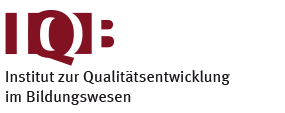Erwerb und Förderung von Sprach- und Lesekompetenz
Ein besonderer Fokus der Forschung des IQB zum Umgang mit Heterogenität bezieht sich auf Sprach- bzw. Lesekompetenzen. Die Forschungsvorhaben untersuchen Fragen des Erwerbs, der Diagnostik und der Förderung von Sprach- und Lesekompetenzen sowie Zusammenhänge zwischen Sprache und Bildungserfolg. Ein besonderes Augenmerk liegt auf Kindern und Jugendlichen, die aus zugewanderten und sozial benachteiligten Familien stammen. Zur Beantwortung der verschiedenen Fragestellungen werden unter anderem Interventionsstudien und Sekundäranalysen von Daten groß angelegter Schulstudien durchgeführt.
So wird z. B. untersucht, ob und welche Merkmale der sog. Bildungssprache (z.B Komplexität der Grammatik oder die Abstraktheit des Vokabulars), Schüler*innen unterschiedlicher Herkunftssprache beim Verstehen deutschsprachiger Texte besondere Schwierigkeiten bereiten. Darüber hinaus wird der Frage nachgegangen, inwieweit die muttersprachlichen Kompetenzen von Heranwachsenden nichtdeutscher Herkunftssprache den Erwerb der deutschen Sprache und ihren Schulerfolg beeinflussen. Einen weiteren Schwerpunkt unserer Forschungsaktivitäten bilden neben der Evaluation bereits implementierter Maßnahmen zur Sprach- und Leseförderung die theoriegeleitete Entwicklung von Sprachförderansätzen in fachlichen Kontexten und die systematische Untersuchung der Wirksamkeit dieser Ansätze im Rahmen von experimentellen und quasi-experimentellen Studien.
Drittmittelprojekte in diesem Bereich:
Ausgewählte Publikationen
- Gabler, K., Heppt, B., Henschel, S., Hardy, I., Sontag, C., Mannel, S., Hettmannsperger-Lippolt, R. & Stanat, P. (2020). Fachintegrierte Sprachbildung in der Grundschule. Überblick und Beispiele aus dem Sachunterricht. Berlin: Humboldt-Universität zu Berlin. https://doi.org/10.5159/IQB_ProSach_Handreichung_Lehrkraefte_v1
- Gentrup, S., Henschel, S., Beck, L. & Stanat, P. (Hrsg.). (2021). Sprach- und Schriftsprachförderung wirksam gestalten: Die BiSS-Evaluationsprojekte. Stuttgart: Kohlhammer.
- Henschel, S., Gentrup, S., Beck, L. & Stanat, P. (Hrsg.). (2018). Projektatlas Evaluation: Erste Ergebnisse aus den BiSS-Evaluationsprojekten. Berlin: BiSS-Trägerkonsortium.
- Henschel, S. & Stanat, P. (2018). Konzepte der Sprachbildung und Sprachförderung erproben, überprüfen und optimieren. In C. Titz, S. Weber, A. Ropeter, S. Geyer & M. Hasselhorn (Hrsg.), Konzepte zur Sprach- und Schriftsprachförderung umsetzen und überprüfen (S. 13-27). Stuttgart: Kohlhammer.
- Heppt, B., Köhne-Fuetterer, J., Eglinsky, J., Volodina, A., Stanat, P. & Weinert, S. (2020). BiSpra 2-4. Test zur Erfassung bildungssprachlicher Kompetenzen bei Grundschulkindern der Jahrgangsstufen 2 bis 4. Münster: Waxmann.
- Heppt, B. & Stanat, P. (2020). Development of academic language comprehension of German monolinguals and dual language learners. Contemporary Educational Psychology, 62, 1-15. https://doi.org/10.1016/j.cedpsych.2020.101868
- Kempert, S., Edele, A., Rauch, D., Wolf, K. M., Paetsch, J., Darsow, A., Maluch, J. & Stanat, P. (2016). Die Rolle der Sprache für zuwanderungsbezogene Ungleichheiten im Bildungserfolg. In C. Diehl, C. Hunkler & C. Kristen (Hrsg.), Ethnische Ungleichheiten im Bildungsverlauf: Mechanismen, Befunde, Debatten (S. 157-241). Wiesbaden: Springer Fachmedien Wiesbaden.
- Marx, A., Heppt, B. & Henschel, S. (2016). Listening comprehension of academic and everyday language in first language and second language students. Applied Psycholinguistics, 1-30.
- Meier, C., Roick, T., Henschel, S., Brüggemann, J., Frederking, V., Rieder, A., Gerner, V. & Stanat, P. (2017). An extended model of literary literacy. In D. Leutner, J. Fleischer, J. Grünkorn & E. Klieme (Hrsg.), Competence assessment in education: Research, models, and instruments (S. 55-74). New York: Springer.
- Maluch, J. T., Kempert, S., Neumann, M., & Stanat, P. (2015). The effect of speaking a minority language at home on foreign language learning. Learning and Instruction, 36, 76–85. doi: 10.1016/j.learninstruc.2014.12.001
- Paetsch, J., Wolf, K. M., Stanat, P. & Darsow, A. (2014). Sprachförderung von Kindern und Jugendlichen aus Zuwandererfamilien. Zeitschrift für Erziehungswissenschaft, 17, 315-347. doi: 10.1007/s11618-013-0474-1
- Schöppe, D., Blatter, K., Faust, V., Jäger, D., Stanat, P., Artelt, C. et al. (2013). Effekte eines Trainings der phonologischen Bewusstheit bei Vorschulkindern mit unterschiedlichem Sprachhintergrund. Zeitschrift für Pädagogische Psychologie, 27 (4), 241–254. doi: 10.1024/1010-0652/a000110
- Stanat, P., Becker, M., Baumert, J., Lüdtke, O. & Eckhardt, A. G. (2012). Improving second language skills of immigrant students: A field trial study evaluating the effects of a summer learning program. Learning and Instruction, 22, 159–170. doi: 10.1016/j.learninstruc.2011.10.002
- Wolf, K. M., Felbrich, A., Stanat, P. & Wendt, W. (2011), Evaluation der kompensatorischen Sprachförderung in Brandenburger Kindertagesstätten. Empirische Pädagogik, 25 (4), 423–438.

